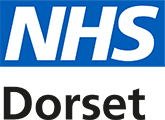GLP-1 Agonists
The GLP-1 RA shortage is becoming more pressing. Tackling this shortage in a structured way will not only reduce the impact on patients who continue to need these treatments but will also help meet PQS targets
Glucagon-like peptide – 1 agonists (GLP-1)
- Implement the prescribing elements of NICE Guideline NG28 (March 2022)
- Prescribe GLP-1s as per NICE guidance NG28 and review effectiveness of currently prescribed GLP-1 therapy as part of individualised care in type 2 diabetes
A Dorset audit of general practice GLP-1 prescribing shows that NG28 is not routinely followed at initiation or at 6 monthly review.
This work will support management of the national shortage of GLP-1 agents.
Work with diabetes leads in practices and PCNs to identify people prescribed a GLP-1 using the SystmOne searches available DorsetsystmOneGPs>PQS Finance 2526>F1 GLP-1 prescribing to ensure GLP-1 medicines are prescribed in line with NG28 at their next diabetes review.
- SystmOne searches: Dorset SystmOne GPs/PQS Finance 2526/F1 GLP1 prescribing
- Flow chart – with information on SystemOne searches
- Text message templates
- NICE recommendations for GLP-1 prescribing and review, plus associated visual summary
- A resource is available in DiiS Medicine Intelligence page to monitor your progress
- Dorset formulary – GLP1
- Webinar GLP – 1 Increasing understanding of use in relation to the CCLIP
- Medicine Supply Notification GLP-1 receptor agonists used in the management of type 2 diabetes – NHS England 27/06/2023
Continuous Glucose Monitoring (CGM)
Audit CGM prescribing using the SystmOne searches provided to ensure it is in keeping with the updated commissioning statement on the Dorset formulary: if not, refer the prescription request back to initiating prescribing team via advice and guidance or provide the patient with the guidance in the resource tab.
CGM technologies have been appraised by NICE and funded by NHS Dorset based on its updated published policy. Prescribing outside of this policy is not commissioned and people will need to self-fund or meet the requirements of an individual funding request.
Review the people identified in the provided search in SystmOne and complete the automated SystmOne CGM template (version 3) to record where any people qualify for CGM but are incorrectly coded.
Refer inappropriate new CGM prescription requests using ‘declined prescribing request form’ to ensure CGM devices are prescribed in line with NG28, the updated Dorset CGM policy and commissioning statement at their next diabetes review.
For existing CGM prescription which no longer meet the eligibility criteria within the updated Dorset CGM policy and commissioning statement, either refer the prescription request back to initiating prescribing team via advice and guidance or provide the patient with the guidance in the resource tab.
Dorset Formulary CGM Sub Section – includes Commissioning Statement and other supporting documents
SystmOne searches: Dorset SystmOne GPs/PQS Finance 2526/F3 CGM outside commissioning policy.
Accessing the Continuous Glucose Monitoring (CGM) SystmOne Protocol
Automated SystmOne Template ‘CGM NHS Dorset Version 3’.
Template letter to hospital to decline prescribing
General practice messaging about change in access to CGM
For queries for complex questions, send to medicine.question@nhsdorset.nhs.uk
NHS England blood glucose and ketone testing
As per the NHSE recommendations, these products offer best value in diabetes management.
Run the SystmOne search provided to identify any patients prescribed meters, testing strips or lancets not within NHSE recommendations and change them to a suitable NHSE recommended alternative product.
SystmOne searches: Dorset SystmOne GPs/PQS Finance 2526/F2 NHSE blood glucose & ketone testing.
PCN – pharmaceutical company liaison. Please contact the ICB medicines optimisation team for further information on support available for patient and staff education.
NHSE commissioning recommendations: blood glucose and ketone meters, testing strips and lancets.
Biosimilar insulin – IN DEVELOPMENT
When initiating patients on a new insulin prescription, prescribe as the equivalent biosimilar product.
Exclusions: Patients < 18 years, patients with an insulin pump, patients with recorded allergy to any biosimilar product or its excipients, pregnant patients already on insulin. A list of available biosimilar insulins and their comparative originator insulin is listed:
| Originator insulin | Equivalent biosimilar insulin | Eligible patient cohort (see exclusion criteria above) |
|---|---|---|
| Novorapid (insulin Aspart) 100units/ml prefilled pens | Prescribe Trurapi (insulin aspart) 100units/ml pens | Adult patients who require a rapid-acting insulin analogue (bolus) insulin for type 1 diabetes.
Adult patients who require a multi-dose insulin for type 2 diabetes |
| Novorapid (insulin Aspart) 100units/ml cartridges | Prescribe Trurapi (insulin aspart) 100units/ml cartridges | Adult patients who require a rapid-acting insulin analogue (bolus) insulin for type 1 diabetes.
Adult patients who require a multi-dose insulin for type 2 diabetes Provide new reusable pen for Trurapi cartridges. |
| Novorapid (insulin aspart) 100units/ml vials | Prescribe trurapi (insulin aspart) 100units/ml vial | Adult patients who require a rapid-Acting insulin analogue (bolus) insulin for type 1 diabetes.
Adult patients who require a multi-dose insulin for type 2 diabetes |
| Lantus (insulin glargine) 100units/ml prefilled pens | Prescribe semglee (insulin glargine) 100units/ml pens | Adult patients who require a long-acting insulin analogue (basal) for type 1 diabetes
Adult patients who require a long-acting insulin and oral treatment for type 2 diabetes. |
| Humalog (insulin lispro) 100units/ml pre-filled pens | Prescribe admelog (insulin lispro) 100units/ml prefilled pens | Adult patients who require a Rapid-Acting insulin analogue (bolus) for Type 1 Diabetes |
| Humalog (insulin lispro) 100units/ml cartridges | Prescribe admelog (insulin lispro) 100units/ml cartridges | Adult patients who require a Rapid-Acting insulin analogue (bolus) for Type 1 Diabetes |
| Humalog (insulin lispro) 100units/ml vials | Prescribe admelog (insulin lispro) 100units/ml vial | Adult patients who require a Rapid-Acting insulin analogue (bolus) for Type 1 Diabetes |
A biosimilar medicine is a biological medicine which has been shown not to have any clinically meaningful differences from the originator medicine in terms of quality, safety and efficacy. Where NICE has already recommended the originator biological medicine, the same guidance will normally apply to a biosimilar of that originator. NHS England aims to drive a step change in the uptake of biosimilar medicines by integrated care systems (ICS).
Biosimilar insulins offer a cost-effective alternative to prescribing originator insulin products.
When starting an insulin for which a biosimilar is available, use the product with the lowest acquisition cost as per the Dorset formulary. Provide patient with biosimilar insulin patient letter (See Dorset Formulary).
High cost pen needles
Cease prescribing of insulin pen needles with a cost greater than £5 per 100 needles and replace with a suitable formulary option.
Only issue safety pen needles to patients who require healthcare professional assistance to administer insulin.
NHS England guidance states: “prescribers in primary care should not initiate insulin pen needles that cost >£5 per 100 needles for any diabetes patient.”
Use the SystmOne searches provided to identify patients receiving high-cost needles and amend the product supplied.
Communicate the changes to patients involved.
SystmOne search: Dorset SystmOne GPs/PQS Finance 2526/F7 Medicines of low clinical value
Template patient text message:
“NHS Dorset has asked all GP teams to review prescribing of insulin pen needles in line with expert guidance. You may notice a change in the needles we prescribe (they may be made by a different manufacturer), however there is no change in how they are used and you should not notice any difference between these and your previous needles. These products are clinically interchangeable but help the NHS budget to go further. Each needle should only be used once. Please do not re-use needles.
We plan to introduce this change with your next prescription. Please finish your current pen needles before starting your new ones.”


